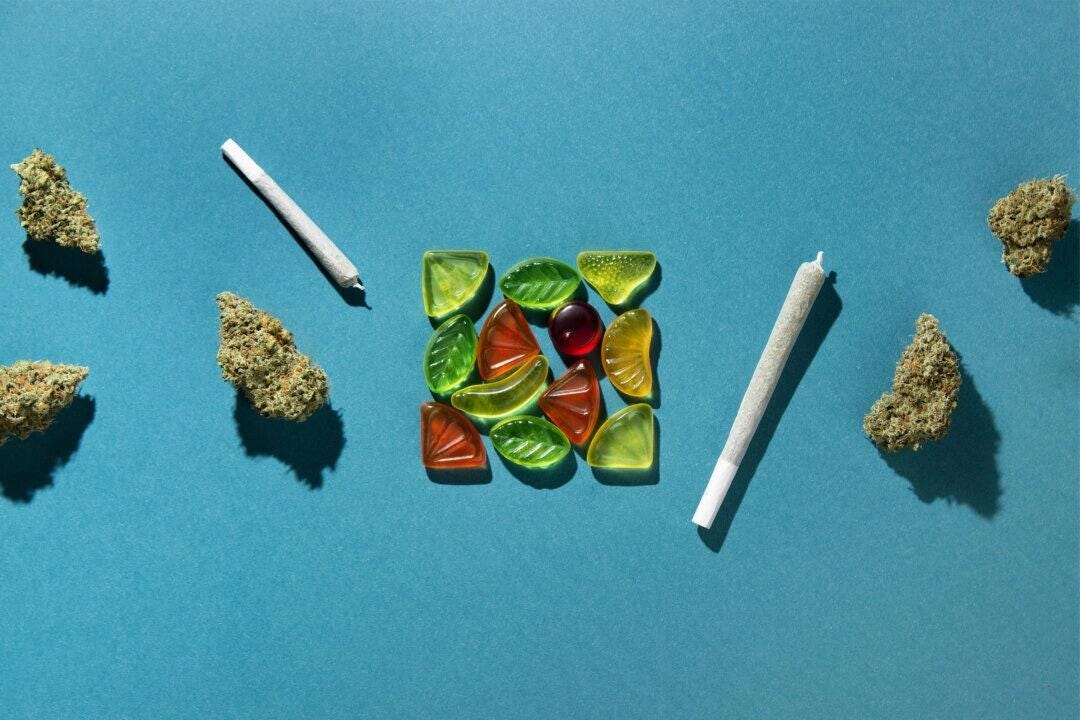
You wondered how long it would be, not cynicism but reality.
Back when Linus Pauling came out with research showing the wonders of ascorbic acid, vitamin C, a dirt cheap substances readily available, it took a while before big pharm rolled out its big attack machine producing research suggesting the contrary.
Much of the research today is like accounting. What’s 2+2 in accounting? Whatever you want it to be. Much of research today is, to use an uptown term, financed.
It’s life pure and simple. Cannabis rolled in medicinary glory for a while offering relief for a variety of ailments that big pharm believes it completely owns.
Big pharma, big money. You can see this study covers all the bases, smoking and ingesting. What’s left, pickle ball?
They own the CDC and FDA. Period. Fair question: How much cardiovascular disease did their vaccines cause? You think they’ll ever tell you the truth.
Note too one of the researchers conveniently tried to dodge one of science’s favorite ploys on research results they don’t like, claiming the study sample was too small to be significant.
“Springer said they had a good reason for the relatively small number of participants. “We were very picky!”
All the other small studies they discarded over the years weren’t picky enough, huh? Such BS. And they arrogantly expect you to be docile little lemmings and swallow it whole.
But Springer didn’t stop there. He rolled out the big one “robust statistics.”
“It’s a relatively small study,” Springer said. “Nonetheless, the differences between groups are clear, and the statistics are robust and show that our results have a high confidence level.”
We love it when scientist use the term confidence. Next time you have a debate with one tout the term to buttress your position and see what that gets you.
We’re not suggesting cannabis is anything. But to pretend that science is this lone oasis of probity in what is oceans of corruption, distortion and lies afoot today about nearly everything is laughable.
“Long-term marijuana smoking and THC edible use may harm the blood vessels as much as tobacco, a new study suggests. The research indicates that cannabis users might face an increased risk of heart disease, even if they are otherwise healthy.
“Both smoking and eating cannabis caused the blood vessel linings to not work as effectively, even in otherwise healthy adults who never used tobacco, researchers at the University of California, San Francisco (UCSF) found.
““The blood vessels don’t seem to care whether the smoke is from tobacco or cannabis,” study author Matthew L. Springer, professor of medicine at the Cardiovascular Research Institute at UCSF, told The Epoch Times. The research shows cannabis users had blood vessel function “very similar” to tobacco smokers in previous studies, he noted.
Different Methods, Same Damage
“For the estimated 17.7 million Americans who use marijuana in some form every day, according to polling data, the study raises important questions about long-term health risks that remain largely unstudied.
“The research, recently published in JAMA Cardiology, tracked 55 healthy adults aged 18 to 50, dividing them into three groups: marijuana smokers, THC (Tetrahydrocannabinol) edible users, and non-users. All cannabis users consumed their preferred method at least three times weekly for more than a year—making them regular, not casual users.
Springer said they had a good reason for the relatively small number of participants. “We were very picky!”
“The study is very clean in that our cannabis user groups have never been tobacco smokers/vapers, and tend to avoid secondhand smoke,” he added. “The marijuana smokers only smoke marijuana and don’t vaporize it or vape THC, and our THC edibles group avoids all smoke.”
“Researchers measured blood flow-mediated dilation, which shows how well blood vessels relax and contract. Both cannabis groups showed significantly worse vascular function than nonusers, with heavier use linked to greater damage.
Smoked or Eaten: Same Effect, But for Different Reasons
“While smoking marijuana and eating edibles both harmed blood vessels, researchers noted they likely do so for different reasons.
“Marijuana smokers showed reduced production of nitric oxide, a compound that helps blood vessels stay healthy. This effect was not seen in edible users, though their blood vessels sustained similar vascular damage.
“Other measures of blood vessel health, such as arterial stiffness, did not differ among the groups.
“For cannabis smokers, Springer believes that smoke is the culprit for their blood vessel damage. Source
“Tobacco smokers have the same functional problems, and there’s no THC in tobacco smoke,” he noted. Previous rat studies showed that even marijuana smoke without any cannabinoids still damaged cardiovascular function.”


